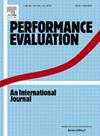Challenges and strategies for implementers and evaluators working in conflict settings
IF 0.8
4区 计算机科学
Q4 COMPUTER SCIENCE, HARDWARE & ARCHITECTURE
引用次数: 0
Abstract
Practitioners implementing and evaluating humanitarian programs in conflict zones face unique challenges requiring context-sensitive guidance. Conflict zones—geographical areas with militarized and non-militarized violence, widespread political instability, and state-sanctioned intimidation and genocidal violence—are rife with logistical, methodological, and ethical challenges that impact implementation and evaluation. Although challenges have been well-documented, few solutions or evaluation frameworks exist to help evaluators in conflict zones confront these challenges. This article examines how the application of implementation science frameworks, specifically, Reach, Effectiveness, Adoption, Implementation, and Maintenance and the Consolidated Framework for Implementation Research, offers useful strategies to mitigate some challenges in conducting evaluations in conflict zones. Areas for future research include collaborative team approaches to using these frameworks, ethical guidance, and reporting and dissemination.在冲突环境中工作的实施者和评估者面临的挑战和策略
在冲突地区实施和评估人道主义项目的从业人员面临着独特的挑战,需要根据具体情况提供指导。冲突地区——存在军事化和非军事化暴力、广泛的政治不稳定以及国家批准的恐吓和种族灭绝暴力的地理区域——充斥着影响实施和评估的后勤、方法和道德挑战。尽管挑战已经被充分记录,但很少有解决方案或评估框架可以帮助冲突地区的评估人员应对这些挑战。本文考察了实施科学框架的应用,特别是,范围、有效性、采用、实施和维护以及实施研究的统一框架,如何提供有用的策略来减轻在冲突地区进行评估时的一些挑战。未来的研究领域包括使用这些框架的协作团队方法、伦理指导以及报告和传播。
本文章由计算机程序翻译,如有差异,请以英文原文为准。
求助全文
约1分钟内获得全文
求助全文
来源期刊

Performance Evaluation
工程技术-计算机:理论方法
CiteScore
3.10
自引率
0.00%
发文量
20
审稿时长
24 days
期刊介绍:
Performance Evaluation functions as a leading journal in the area of modeling, measurement, and evaluation of performance aspects of computing and communication systems. As such, it aims to present a balanced and complete view of the entire Performance Evaluation profession. Hence, the journal is interested in papers that focus on one or more of the following dimensions:
-Define new performance evaluation tools, including measurement and monitoring tools as well as modeling and analytic techniques
-Provide new insights into the performance of computing and communication systems
-Introduce new application areas where performance evaluation tools can play an important role and creative new uses for performance evaluation tools.
More specifically, common application areas of interest include the performance of:
-Resource allocation and control methods and algorithms (e.g. routing and flow control in networks, bandwidth allocation, processor scheduling, memory management)
-System architecture, design and implementation
-Cognitive radio
-VANETs
-Social networks and media
-Energy efficient ICT
-Energy harvesting
-Data centers
-Data centric networks
-System reliability
-System tuning and capacity planning
-Wireless and sensor networks
-Autonomic and self-organizing systems
-Embedded systems
-Network science
 求助内容:
求助内容: 应助结果提醒方式:
应助结果提醒方式:


